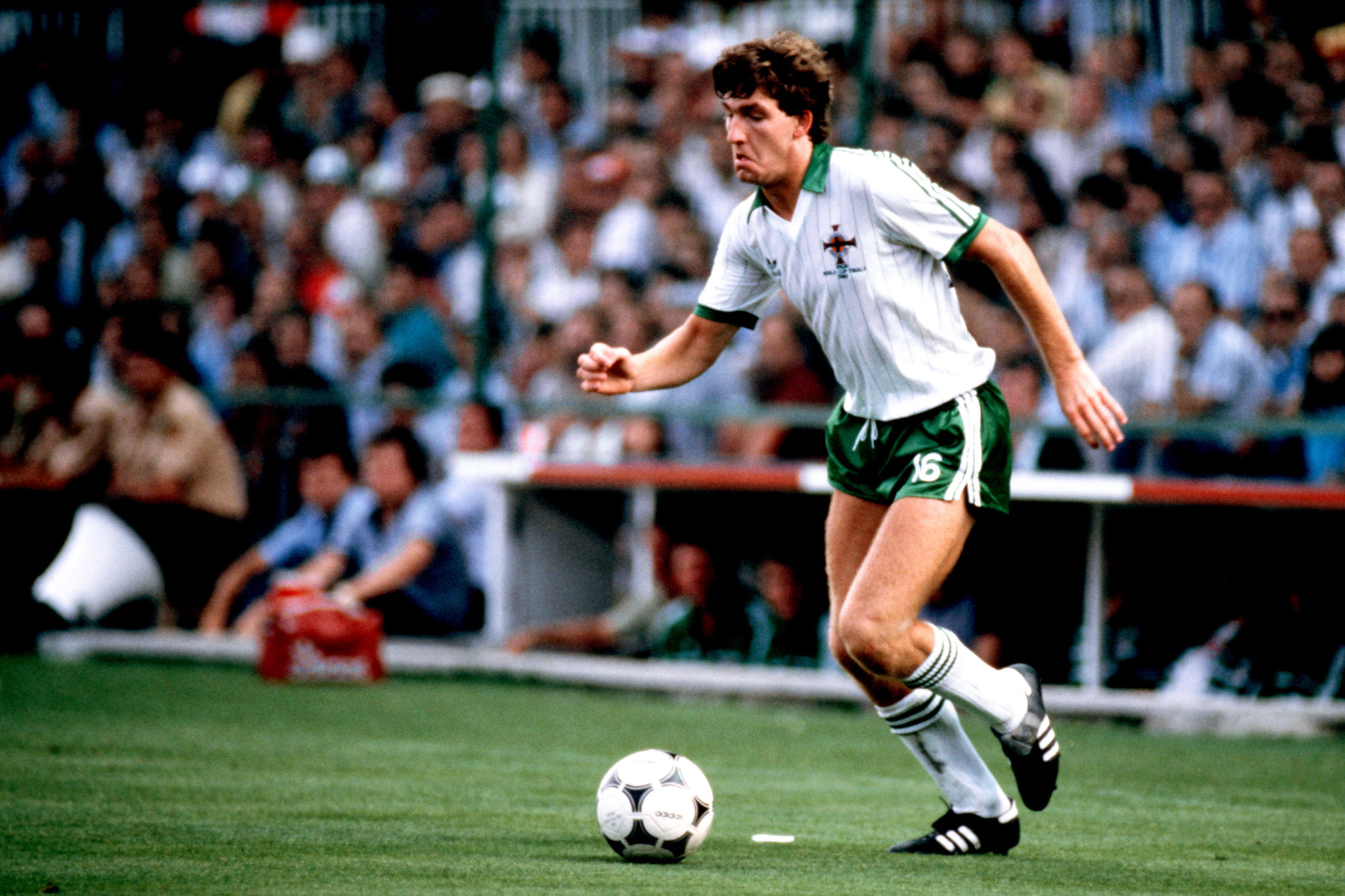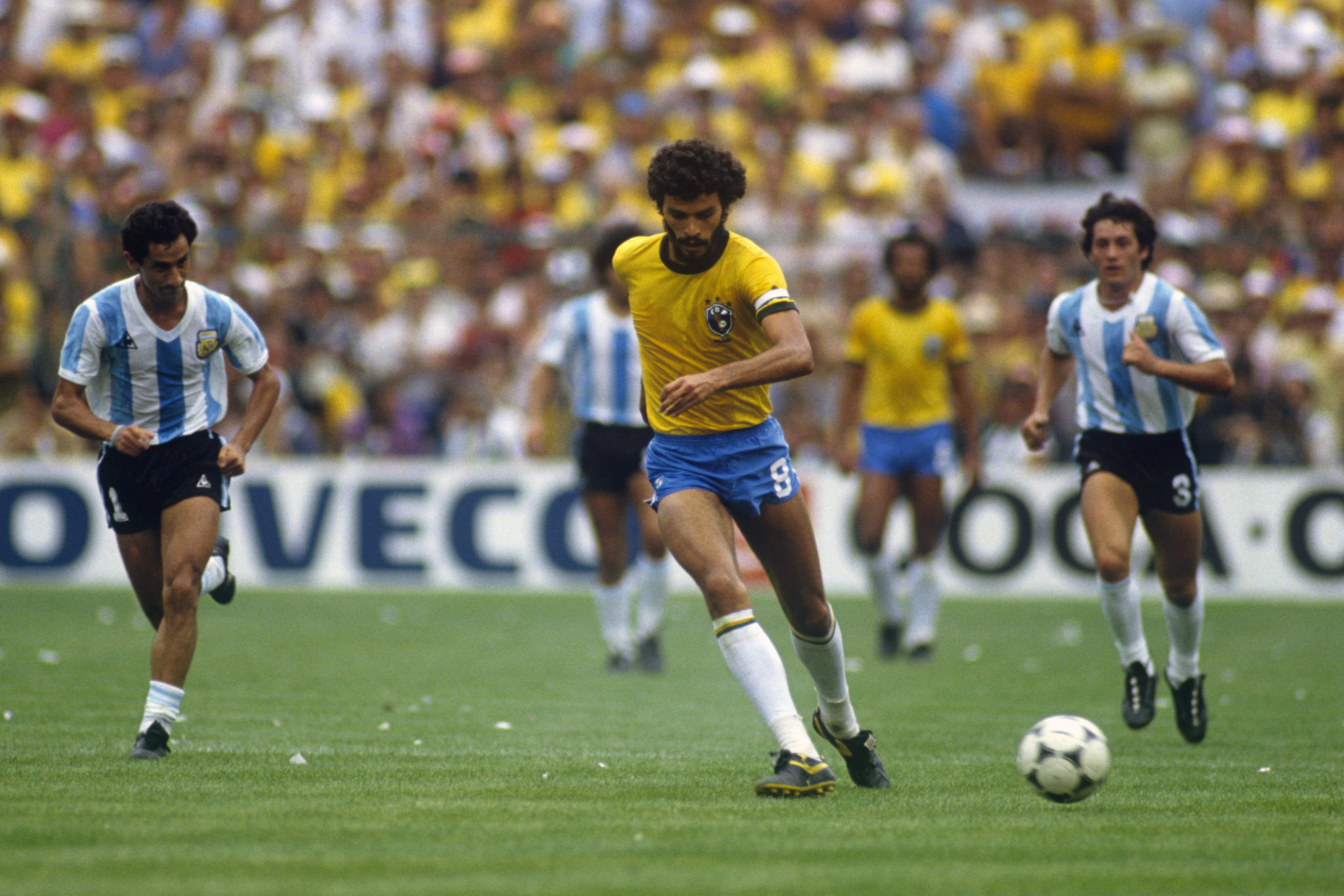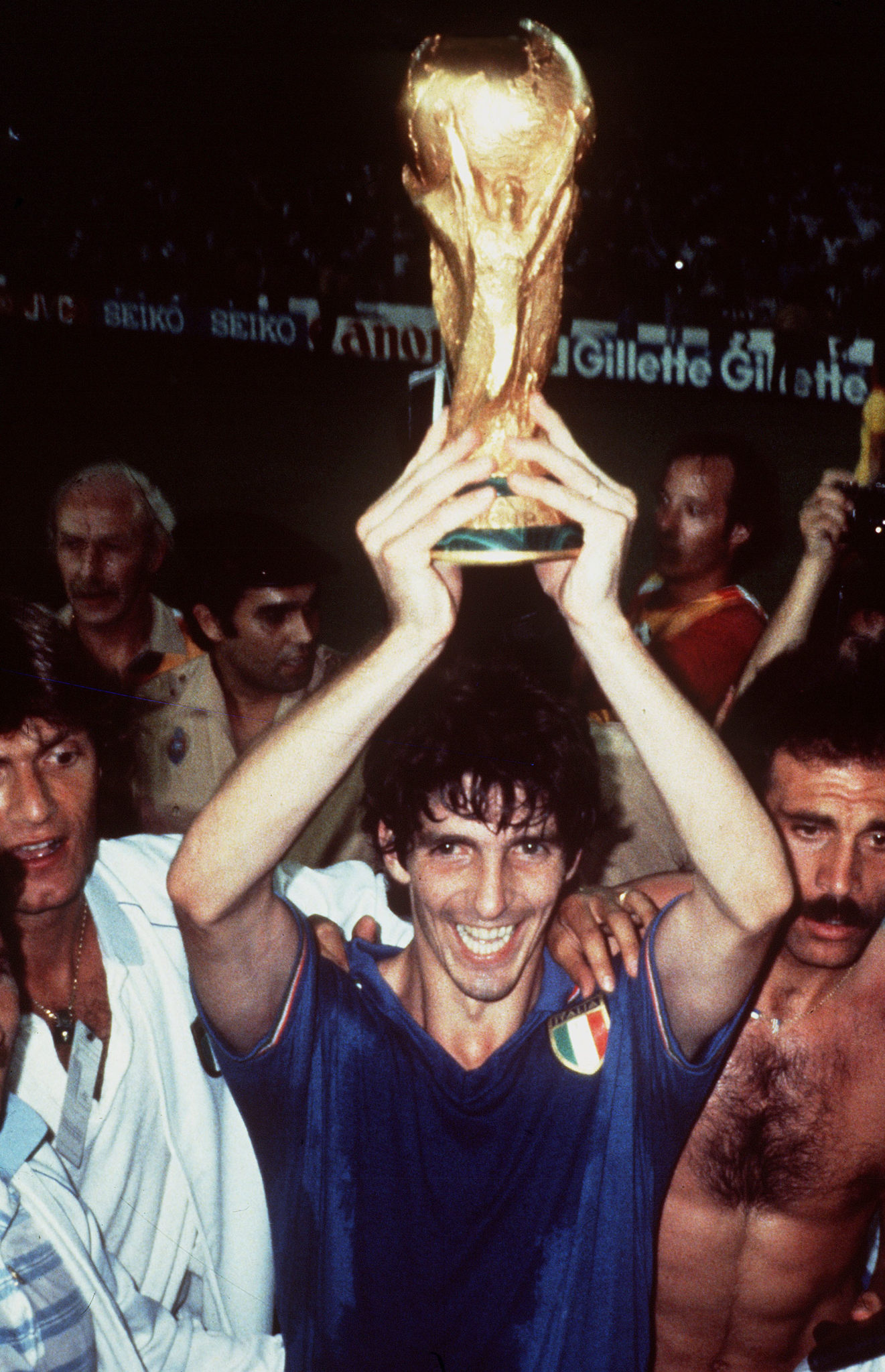With no live football during the coronavirus pandemic, we've decided to reflect on the FIFA World Cup down through the years on Off the Ball every Saturday.
The 1982 World Cup was held in Spain, containing 24 teams and won by Italy, their third victory in the competition.
The Republic of Ireland narrowly missed out on qualification through goal difference, pipped by Belgium and France, with the French reaching the semi-finals of the tournament proper.
It was a real shame that Liam Brady at his peak didn't taste a World Cup finals, while the Irish team at the time also included Mark Lawrenson and Frank Stapleton.
Northern Ireland did qualify and fielded the youngest ever player in the history of the tournament, 17 year old Norman Whiteside (below). Billy Bingham's men were captained by Martin O'Neill and shocked hosts Spain 1-0 in the first group stage. Gerry Armstrong scored the winner and Northern Ireland put up a brave show in the subsequent phase before being knocked out, a 4-1 defeat to France sealing their fate.
 Norman Whiteside, Northern Ireland
Norman Whiteside, Northern IrelandThere was a strange format, with six groups of four producing two qualifiers into four groups of three. The winners of each pool in the second group stage reached the semi-finals.
Argentina were the holders, but their 1-0 reversal to Belgium in their opening match propelled them into a 'Group of Death' in the second phase with Italy and Brazil.
Diego Maradona was 21 at the time, but he couldn't make an impact, constrained by the overly physical Claudio Gentile in Italy's 2-1 win over Argentina. A frustrated Maradona was then sent off as Brazil with Socrates (below), part of a sumptuous midfield, won their South American derby 3-1.
The Brazilians played 'o jogo bonito', or the 'beautiful game' in Spain, dancing to a Samba beat led by Zico, Eder and Falcao as they scored 13 goals en route to a match with Italy that they only needed to draw.
However, in one of the greatest games of all time, Italy ignited like a firework and with Paolo Rossi in deadly form, they prevailed 3-2 at Barcelona's Espanyol Stadium. Rossi scored an assassin's hat-trick, which was an incredible redemption after his recent return to football following a two year ban for his involvement in a match fixing scandal back home.
 Brazil's Socrates in action (c). Also pictured for Argentina is Osvaldo Ardiles (l) and Juan Barbas (r).
Brazil's Socrates in action (c). Also pictured for Argentina is Osvaldo Ardiles (l) and Juan Barbas (r).Poland had a star player in Zbigniew Boniek, who scored a hat-trick of his own in their 3-0 defeat of Belgium that enabled them to reach the last four.
The Poles would run into Rossi and Italy in the semi-finals, as the Juventus striker scored a brace at the Nou Camp.
France started slowly, losing 3-1 to an England side that would exit the competition without losing a game. While France grew throughout the month, inspired by Michel Platini, England were hampered by injuries to Kevin Keegan and Trevor Brooking. The brilliant Bryan Robson was never fully fit, and Glenn Hoddle's game time was inexplicably limited.
It was West Germany that would face France in the semi-finals. The Germans were not everyone's cup of tea, having engaged in a non-official pact with Austria to take a 1-0 lead in their Group game in Gijon, a result that would send both countries through at Algeria's expense. Once the Germans went ahead, the remainder of the game was a sham. It was disgrace that would lead to all future decisive World Cup group matches being played at the same time.
West Germany squeezed past England and Spain to get to Seville, where they defeated France on penalties after a 3-3 draw following extra time. It was the first penalty shoot out in the history of a World Cup, which is hard to fathom now. It wasn't even the main talking point, as German goalkeeper Toni Schumacher took Patrick Battiston out of the game with one of the most cynical fouls ever witnessed.
It all resulted in an Italy v West Germany final, and peaking at the right time, the Italians won 3-1 at Madrid's Santiago Bernabeu, a match which produced Rossi's sixth goal of the World Cup and a finish by future Republic of Ireland assistant manager Marco Tardelli that gave us one of football's great celebrations.
There’s no live football tomorrow, so between 3-4 on @offtheball SATURDAY, we will begin our weekly look back at the @FIFAWorldCup. First up tomorrow: 1982. If you are old enough, do you remember watching it? ⚽️ @NewstalkFM pic.twitter.com/IqflvC4BKl
— John Duggan (@JohnDugganSport) March 20, 2020
So Italy were world champions following a tournament that showcased great kits, better TV coverage, the start of Maradona's World Cup journey, a case what might have been for France, a Northern Ireland team that made new friends, and a Brazilian exit that left us all a little sad.
In the end, Italy, managed by Enzo Bearzot, had the best balance throughout their team from 40-year-old captain Dino Zoff in goal, to elegant sweeper Gaetano Scirea, to tireless winger Bruno Conti, right up to Rossi in attack.
 Italy's Paolo Rossi is lifts the world cup trophy up into the air after Italy won against Germany in the final
Italy's Paolo Rossi is lifts the world cup trophy up into the air after Italy won against Germany in the finalYou can watch back Off the Ball's chat on the 1982 World Cup with John Duggan, Neil Treacy, Dan McDonnell and Johnny Ward below.








